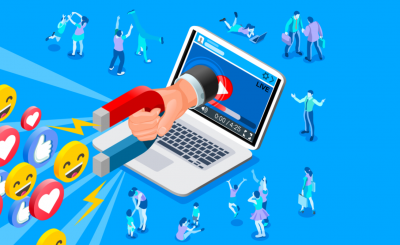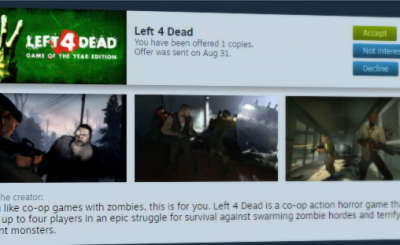Most industry professionals will tell you the first thing you need to establish when starting out with a new game, or even just an idea for a new game, is who your target audience are and how you’ll reach them. Now, indie game marketing differs from conventional marketing somewhat in this endeavour. Whilst triple-A has the luxury of their audience often seeking them out you can’t expect that level of attention as an indie. You will have to go out and find your target audience if you want to expose them to your game. Only once you have an idea of who your target audience
There’s a considerable benefit in finding your target audience as well. The greater the degree to which you can focus your PR and marketing efforts the more time and money it’s going to save you in the long run. Creating a plan to understand your target audience is no easy task, but these basics tips should set you in the right direction to properly marketing your games to the people that want to buy them.
Lookalike marketing
The first thing you’ll need to do is establish who your competitors are and what previously released games in your genre your game aligns with the most. Doing this will give you a baseline of comparison for your project as if a similar product has already established demographics it may save you some of the legwork. Granted, this can be a little tricker if what you’re working on doesn’t fit into a genre or even resemble anything on the market right now. Although rare, in these cases you should use the most similar games you can find for comparison.
After locating a couple of similar games in your genre it’s time to begin researching what their target audience is. There are several ways to go about this, but the most cost effective is to use some simple, free tools to gather basic data so you can build on it later.
Surprise, Facebook is still useful
Although Facebook might not be as effective as it once was for audience building it can prove useful for gathering demographic data. You can create a free ad manager or business account which you can then use to access the social network’s robust marketing tools. Using the Audience Insights
The kind of stuff that is going to be useful to you is age, sex, behaviours, likes, used devices and similar interests. With this, you can start to analyse trends and build a profile of your target audience. As you might be beginning to understand this can be an extremely time-consuming process, so if you’re doing it yourself it’s probably best to keep the
Where’s the party?
So, you know generally who your target audience is – your next challenge is to find a way to reach them. This part can be considerably more tricky than simply identifying who’ll be interested in your game, as it’s a nuanced problem. Again, the best place to start is social media. Start to reach out and connect with some of your target audience on platforms like Twitter. P
From there, you can begin to engage with your target audience and expose them to your project and encourage them to join your community or follow you. Community building isn’t your only option though. Now you know who your target audience is you can begin to understand what websites they frequent and the sort of influencers that resonate with them. With this information, you can plan a PR or marketing campaign targeted at these demographics. For instance, if you’re creating a puzzle platformer and you know there’s one key influencer that resonates with that target audience then that might prove an effective way to reach them and you should probably explore that as a marketing avenue.
Birds of a feather…
One thing of note when trying to engage your target audience is defining who will support your game and who will buy it. Many indie devs fall into the trap of only engaging with development communities across social media neglecting the fact that the majority of people who they’re exposing their game to might not buy it. Dev communities are great for support, but, ultimately, they’re not your target audience – it’s best to split your time between the two.
Dev communities can provide excellent feedback on your game, support it in the early stages as you’re starting up and help to expose your game to new audiences. This is all perfect when starting out, but down the line you want to reach beyond the natural interest fellow developers have in games and define what the public audience for your game will look like. This is not to suggest that you don’t interact with like-minded people online, but that you just bear in mind who you’re trying to sell your product to.
Knowledge is power
Data is going to be the most useful element in identifying and understanding your target audience. Building on the information you’ve already gathered from similar projects you should continue to find out as much information as you can. Use tools like SteamSpy, SimilarWeb and Google Keyword Planner, if you have an Adwords account, to source as much data about who your game’s potential buyers are and where and how they spend their time online. Although these tools might not offer detailed demographics, you can see the size of an audience for a particular genre, where the referral traffic comes from for competitors and similar interests within your demographic. This kind of information combined with your previous research into who exactly your audience


